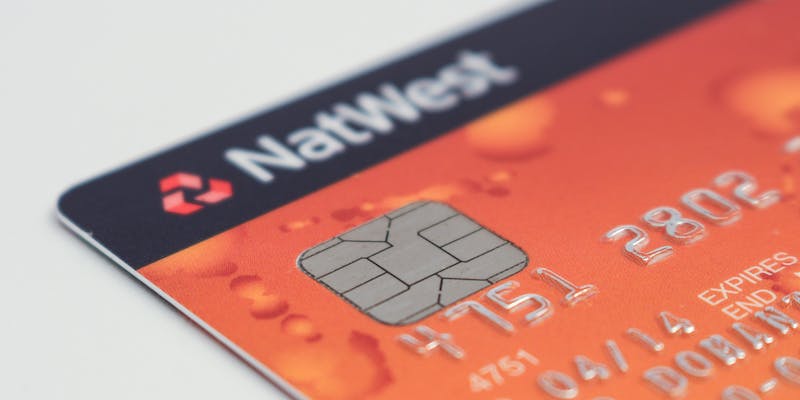Safely Closing a Checking/Savings Bank Account: A Comprehensive Guide
Dec 14, 2023 By Triston Martin
Closing a bank account requires more effort than simply unsubscribing from an email newsletter. However, with careful preparation, you can ensure the account is properly closed without lingering issues. Start by choosing your preferred method to close the account: calling the bank, visiting a branch, or using online services, depending on the bank's policies.
A few essential steps must be taken before closing. Please settle all outstanding transactions and redirect direct deposits and automatic payments to another account. Keep a small balance in the account until all recurring charges are transferred. This measure reduces overdrawing fees.
After these preparations, close the account. Each bank has its procedures, so contact your bank for specific instructions.
Ensure you have a new bank account that meets your daily needs before closing the old one. Choose the account that best suits your needs because each has unique features. Consider these factors:
Update Your Current Prearranged Deposits and Payments

Transferring your existing scheduled transactions to your new bank account is essential when preparing to close a bank account. This includes direct deposits, like your salary, and automatic payments for various expenses. To ensure your paycheck is directed to your new account, speak with your employer about the necessary paperwork for changing your direct deposit details.
Create a comprehensive list of all your monthly recurring expenses. This list should cover everything from car and mortgage payments to insurance, student or personal loans, and credit card bills.
Don't forget to include regular charges like gym memberships, streaming service subscriptions, and payments for utilities and other household expenses. This list will be a valuable tool for canceling payments linked to your old account and efficiently setting them up with your new bank.
A well-organized schedule is essential during bank closure. It helps you avoid missed payments and adjust to your new account. Closing a bank account requires careful attention to prevent financial issues.
Keep up with your regular payments during the transition. This step is essential for managing finances when switching accounts. As you work through closing a bank account, remember to update all your payment details to prevent any missed payments or service interruptions.
Moving Your Funds Before Account Closure
Before closing your bank account, resolve all pending transactions. This is crucial because withdrawing all funds at once while transactions are pending may result in overdraft fees. After all transactions, you can withdraw or transfer the balance to your new account.
If an account has a minimum balance, don't transfer funds unless you are ready to close it. You will avoid minimum balance monthly maintenance fees by doing this. Bank account withdrawals require this step.
Contact Your bank
Contact your bank immediately to close an account. You can use your financial institution's online platform, phone service, or branches. Some financial institutions require a written request or account closure form.
Then, the bank will check your account to ensure all issues are resolved. Standard bank closure procedures accomplish this. Only after all problems are resolved will the closure begin. You can transfer funds or receive a check if you have remaining funds. This step is crucial for bank account closure.
Write a Formal Closure Letter to Your Bank
Writing a detailed letter to your bank is essential when closing a bank account. Step-by-step instructions for making one:
Current Date
Dear Bank Representative,
I am formally requesting bank account termination. The following is given:
Account Name: [Your Account]
Please provide your account number.
Please send any remaining balance to my address below after closing these accounts. To confirm my account closure, please send me a written confirmation.
Please contact me for additional details.
Sincerely,
[Your Signature]
[Your Printed Name]
[Your Mailing Address]
[Your Phone Number]
This straightforward approach ensures your bank has all the necessary information to process your request efficiently. Remember, clarity and conciseness are critical when communicating with financial institutions.
Ensuring Your Bank Account is Officially Closed

After sending your closure letter, do not assume your bank account is closed. The Consumer Financial Protection Bureau recommends written verification by the bank. This step is crucial for financial security. The reason is:
Confirmation Avoids Misunderstandings: Written confirmation from your bank prevents account status misunderstandings.
Protection against Future Disputes: Your written confirmation proves you closed your account in case of a dispute or error.
Peace of Mind: Knowing your account is closed brings peace of mind. It ensures no unexpected fees or charges.
Closure of Different Bank Accounts
Closing a Joint Bank Account
How to close a bank account joint varies. Some banks require both account holders to sign closure requests. This guarantees bank account closure by both parties. However, some banks let one account holder close. Both parties usually submit a formal request to close an online joint account. This measure is in place to avoid confusion and unilateral bank closing decisions.
Closing a Child’s Bank Account
Child-specific bank accounts often become standard accounts at 18. If your state recognizes you as an adult, you can close your custodial bank account. This process resembles bank account closing. When you're ready to manage your finances independently, recognize this right and act accordingly.
Reactivating and Closing Inactive Accounts
If your account is "Inactive," another step is needed before closing. Reactivating the account is required. This is usually done through online/mobile banking or bank customer service. After reactivation, bank closing follows protocol. This issue must be addressed immediately to avoid financial problems.
Clearing an Overdrawn Account Before Closure
Overdrawn accounts complicate the bank closing process. Before closing an account, banks require a zero or positive balance. Closing a bank account requires settling any negative balance. This step ensures financial obligations are met and closure goes smoothly.
Handling the Bank Account of a Deceased Individual
Closing a deceased person's bank account is sensitive and complicated. Choosing beneficiaries or writing a will depends on how the person organized their finances. State laws may affect documentation and steps. To properly navigate such situations, seek legal advice. You must understand and respect these legal nuances to properly manage the deceased's financial legacy.

Safely Closing a Checking/Savings Bank Account: A Comprehensive Guide

Rocket Money vs Quicken: A Comparative Analysis 2024

The Comprehensive Advantages of Collaborating with an Estate Planning Attorney

Understanding OTCQX: A Closer Look at Its Listing Requirements

What is Communism? Learn its History and Principles

What is Elephant Car Insurance? Benefits and Plans Review

Panic of 1857 Explained: Causes, Historical Overview, Impacts and More

Which One Should You Choose? Acorns vs Vanguard 2024

Step-by-step Guide to Get a Funded Options Trading Account

